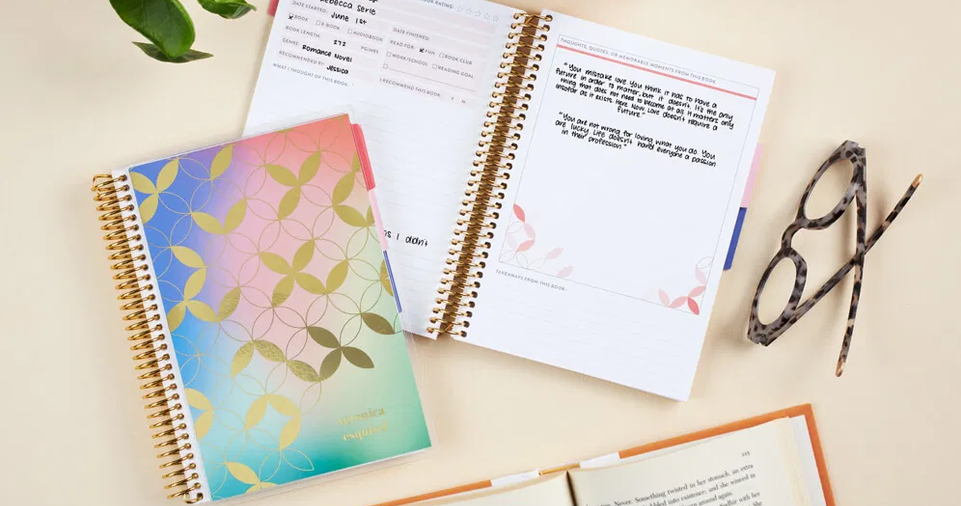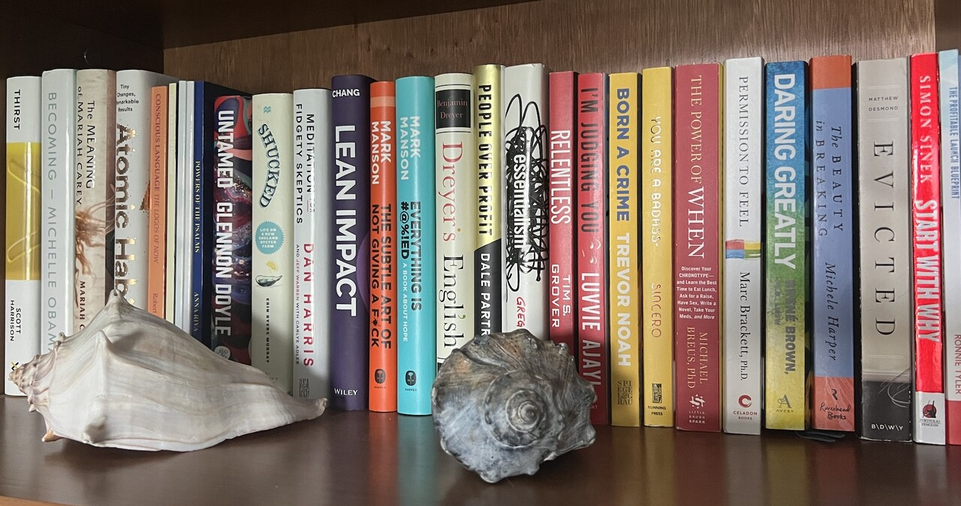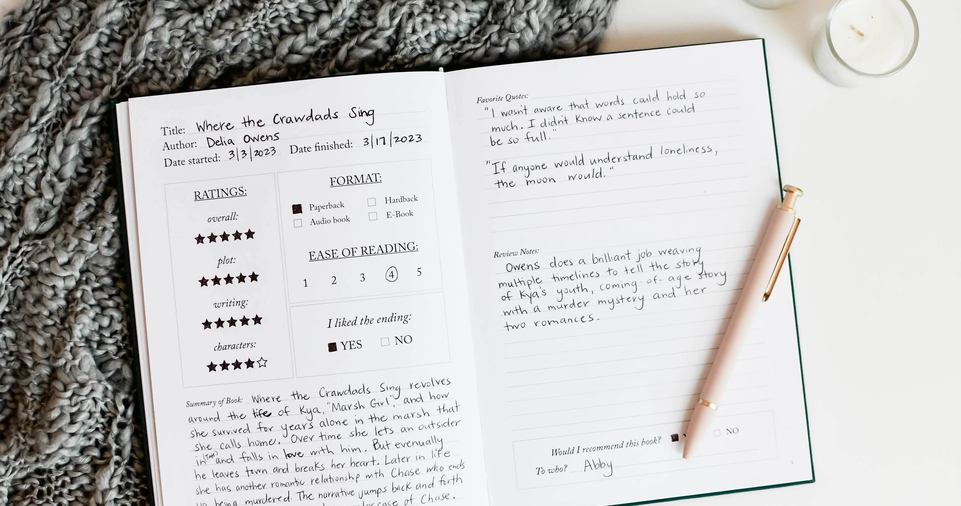If you love reading but often forget the details of the books you’ve read, a book journal might be the perfect solution. A book journal helps you track your reading, reflect on what you’ve learned, and even enhance your appreciation of literature. But how do you start a book journal you’ll actually use? This guide will walk you through the steps to create a meaningful and sustainable journaling habit.
We’ll cover the different formats available, what to include, how to maintain consistency, and tips to make journaling an enjoyable experience. By the end, you’ll have a comprehensive plan to start and maintain a book journal effortlessly.
Why Keep a Book Journal?
A book journal offers many benefits, including:
- Better Retention – Writing down insights helps reinforce what you’ve read.
- Deeper Engagement – Encourages thoughtful reflection on themes, characters, and writing styles.
- Reading Motivation – Tracking progress can make reading more rewarding.
- Personal Growth – Helps identify patterns in your reading habits and interests.
- Improved Writing Skills – Regular journaling sharpens critical thinking and analysis.
- Discovering Reading Trends – Recognize which genres, authors, or styles resonate with you most.
- Book Recommendation Resource – Create a personal archive of books you can easily reference.
- Enhancing Discussion Skills – Develop thoughts you can share in book clubs or discussions.
- Long-Term Memory Improvement – Retaining details over time enhances comprehension.
- Better Connection with Authors – Understanding writing styles and techniques fosters appreciation.
Choosing the Right Format
Your book journal should fit your lifestyle and preferences. Consider the following options:
| Format | Pros | Cons |
|---|---|---|
| Physical Notebook | Tangible, customizable, enhances memory | Can be bulky, harder to edit |
| Digital Journal (e.g., Notion, Evernote, OneNote) | Searchable, easily organized, accessible anywhere | Less personal, screen fatigue |
| Dedicated Book Journal (pre-formatted) | Structured layout, time-saving | Limited customization |
| Bullet Journal Style | Highly customizable, creative | Requires setup time |
| Hybrid Approach (Mix of Physical & Digital) | Best of both worlds | Requires managing two systems |
| Audio Book Journal | Easy for auditory learners, convenient | Less visual, harder to scan |
ALSO READ:How to Get the Most Out of Audiobooks: A Beginner’s Guide
What to Include in Your Book Journal

To make your journal truly valuable, consider including the following elements:
Basic Book Details
- Title, author, and genre
- Date started and finished
- Number of pages
- Rating (e.g., ⭐⭐⭐⭐☆)
- Source (library, Kindle, personal copy)
- Time spent reading
Summary & Key Takeaways
- Brief plot summary (avoid spoilers if sharing with others)
- Key themes and messages
- Favorite quotes
- Most memorable moments
- Characters that stood out
- Unexpected twists or surprises
Personal Reflection
- How did the book make you feel?
- Did it challenge your thinking?
- How does it compare to similar books?
- Would you recommend it?
- Did it inspire any personal actions or changes?
Reading Goals & Progress Tracking
- Monthly or yearly reading goals
- Books to be read (TBR list)
- Notes on abandoned books (and why)
- Reading speed tracker
- Re-reading list for favorites
- Books organized by difficulty level
Creative & Fun Elements
- Book-inspired doodles or sketches
- Collage of covers from your reading list
- Playlist inspired by the book’s mood
- A mood tracker for each book
- Character personality charts
- Predictions about how a series will end
Making It a Habit
A book journal only works if you use it consistently. Here’s how to make it part of your routine:
- Set a Journaling Schedule – Write after each reading session or when finishing a book.
- Keep It Simple – Don’t overcomplicate; jotting down quick thoughts is better than skipping entries.
- Find a Journaling Style That Works for You – Experiment with different formats until you find one that sticks.
- Make It Enjoyable – Use colorful pens, stickers, or digital templates to keep it fun.
- Pair It with a Reading Habit – Combine journaling with your reading ritual (e.g., morning coffee or bedtime routine).
- Set Milestones & Rewards – Reward yourself after logging a certain number of books.
- Reflect & Adjust – Review past entries and refine your journaling technique.
- Use Journaling Prompts – Questions like “What emotions did this book evoke?” or “How did the main character evolve?”
Example Book Journal Entry
Here’s an example of what a book journal entry might look like:
| Field | Example Entry |
|---|---|
| Title | The Night Circus |
| Author | Erin Morgenstern |
| Genre | Fantasy |
| Date Started | April 1, 2024 |
| Date Finished | April 10, 2024 |
| Rating | ⭐⭐⭐⭐⭐ |
| Summary | A mysterious competition between two illusionists unfolds in a magical circus. |
| Themes | Fate vs. free will, the power of imagination, love and sacrifice. |
| Favorite Quote | “The finest of pleasures are always the unexpected ones.” |
| Reflections | The atmospheric writing transported me into the world of the circus. Loved the slow-burn romance and intricate magic system. |
| Memorable Moment | The first time the circus gates opened at midnight. |
| Lessons Learned | True magic lies in the unknown and in the beauty of human imagination. |
Overcoming Common Challenges

Challenge: Forgetting to Update Your Journal
Solution: Set reminders or use an app with notifications.
Challenge: Not Knowing What to Write
Solution: Use prompts such as “What surprised me?” or “Would I recommend this book?”
Challenge: Losing Interest
Solution: Keep your journal visually appealing and add creative elements like doodles or collages.
Challenge: Finding Time
Solution: Incorporate journaling into existing habits, like post-reading reflection time.
Challenge: Running Out of Space in a Notebook
Solution: Use a hybrid approach—transition older entries to digital archives while keeping current reads in a notebook.
Challenge: Staying Motivated
Solution: Join a reading community or buddy up with someone who also journals.
ALSO READ:E-Readers vs. Tablets: Which One Is Right for You?
Conclusion & Call-to-Action
A book journal is a powerful tool for enhancing your reading experience, but it should be a fun and fulfilling practice, not a chore. Start small, find a format that works for you, and make it a habit.
Are you ready to start your book journal? Grab a notebook or open a new digital document and jot down your latest read! Share your journaling tips in the comments.

